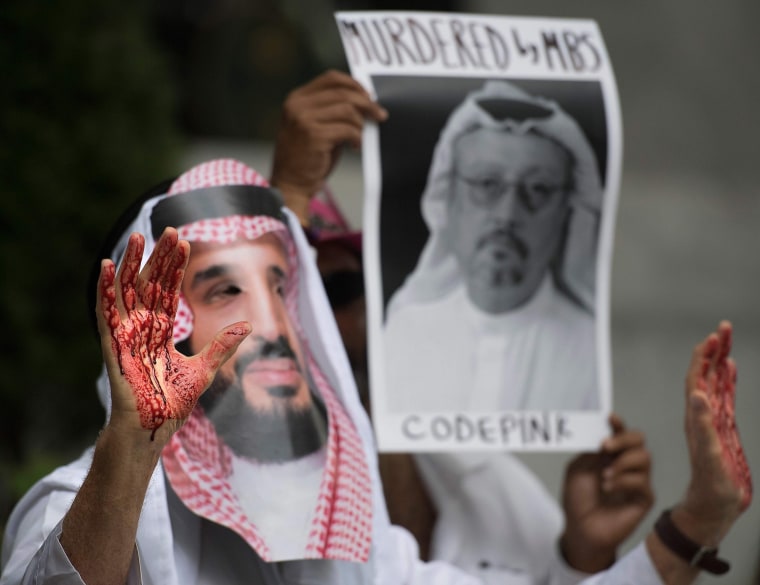DUBAI, United Arab Emirates — Saudi Arabia's King Salman has ordered an end to the death penalty for crimes committed by minors, according to a statement Sunday by a top official.
The decision comes on the heels of another ordering judges to end the practice of flogging, replacing it with jail time, fines or community service and bringing one of the kingdom’s most controversial forms of public punishment to a close.
King Salman's son and heir, Crown Prince Mohammed bin Salman, is seen as the force behind the kingdom’s loosening of restrictions and its pivot away from ultraconservative interpretations of Islamic law known as Wahhabism, which many in the country still closely adhere to.
The crown prince has sought to modernize the country, attract foreign investment and revamp Saudi Arabia’s reputation globally. He's also overseen a parallel crackdown on liberals, women's rights activists, writers, moderate clerics and reformers.
And the 2018 killing of Saudi writer Jamal Khashoggi in Turkey by agents who worked for the crown prince drew sharp criticism internationally.
The latest royal decree by King Salman could spare the death penalty for at least six men from the country’s minority Shiite community who allegedly committed crimes while under the age of 18. In a document seen by The Associated Press, the royal decree orders prosecutors to review cases and drop punishments for those who've already served the maximum 10 years.
However, the decree states that terrorism-related cases of minors will be tried differently. It was not immediately clear whether these cases would also be spared execution or be bound by the 10-year prison limit.
Amnesty International and Human Rights Watch have long called on the kingdom to abolish the use of the death penalty, particularly for crimes committed by minors.
The president of the Saudi government's Human Rights Commission, Awwad Alawwad, confirmed the latest decision in a statement Sunday, saying it helps the kingdom establish “a more modern penal code and demonstrates the kingdom’s commitment to following through on key reforms.”
The decree expands on a previous order by King Salman issued in late 2018, which set a maximum 10-year prison term for minors in certain cases, except for crimes punishable by death. Now the 10-year maximum applies to all crimes by minors, with the possible exception of terrorism-related crimes.
Saudi Arabia's Supreme Court recently issued a directive to end flogging as a form of punishment sometime in April, according to another document seen by The Associated Press.
The public spectacle of whipping a handcuffed prisoner for often non-violent crimes had drawn some comparisons to the types of punishment carried out by extremist groups like the Islamic State. Saudi authorities had argued it was a form of deterrence against potential criminals. Rights groups criticized the practice as inhumane.
